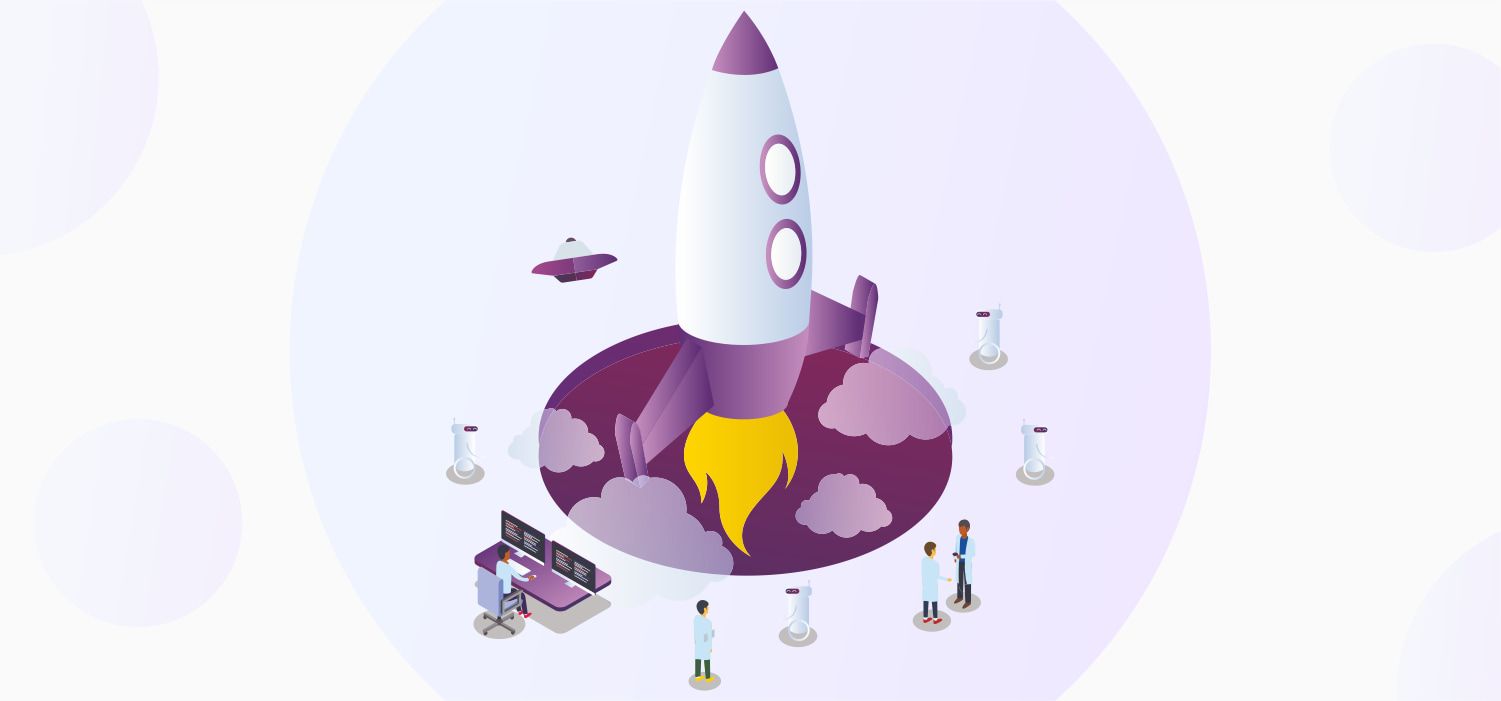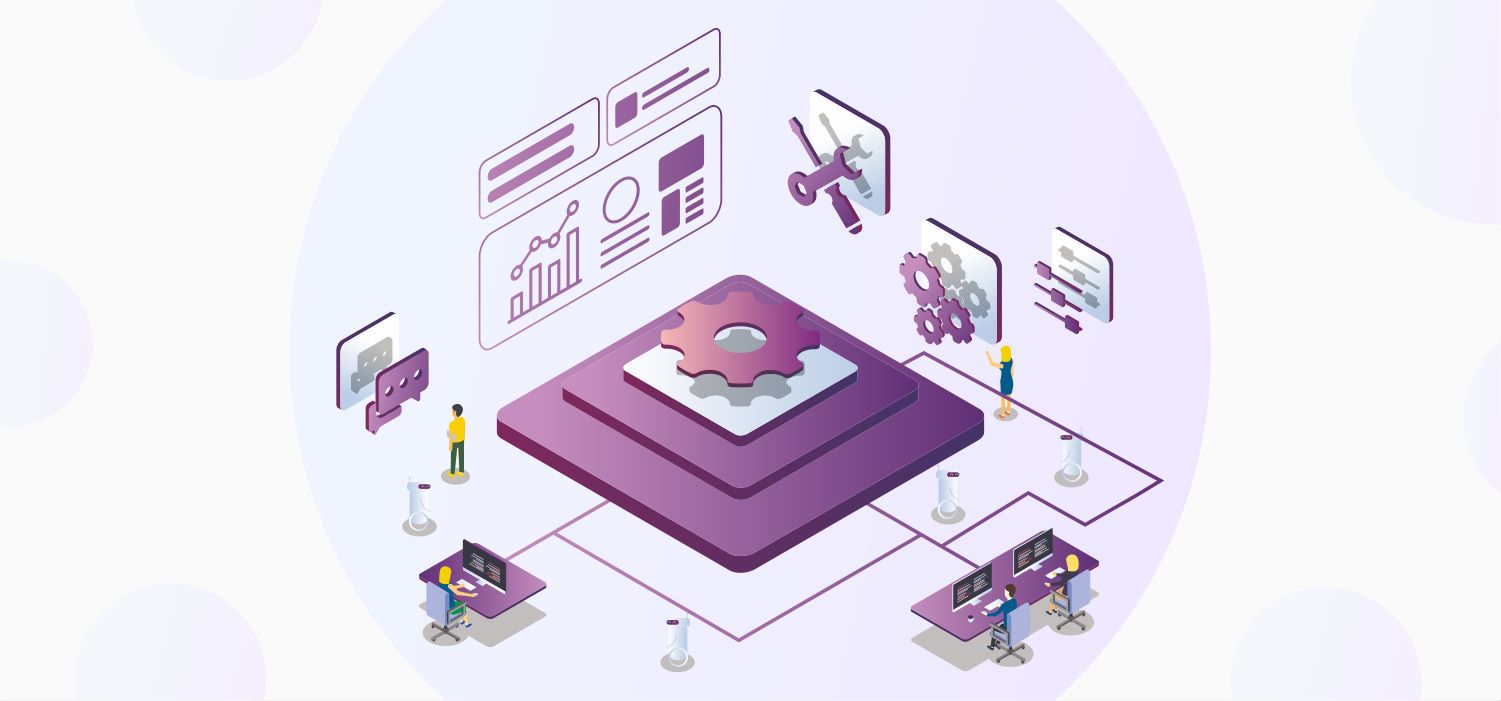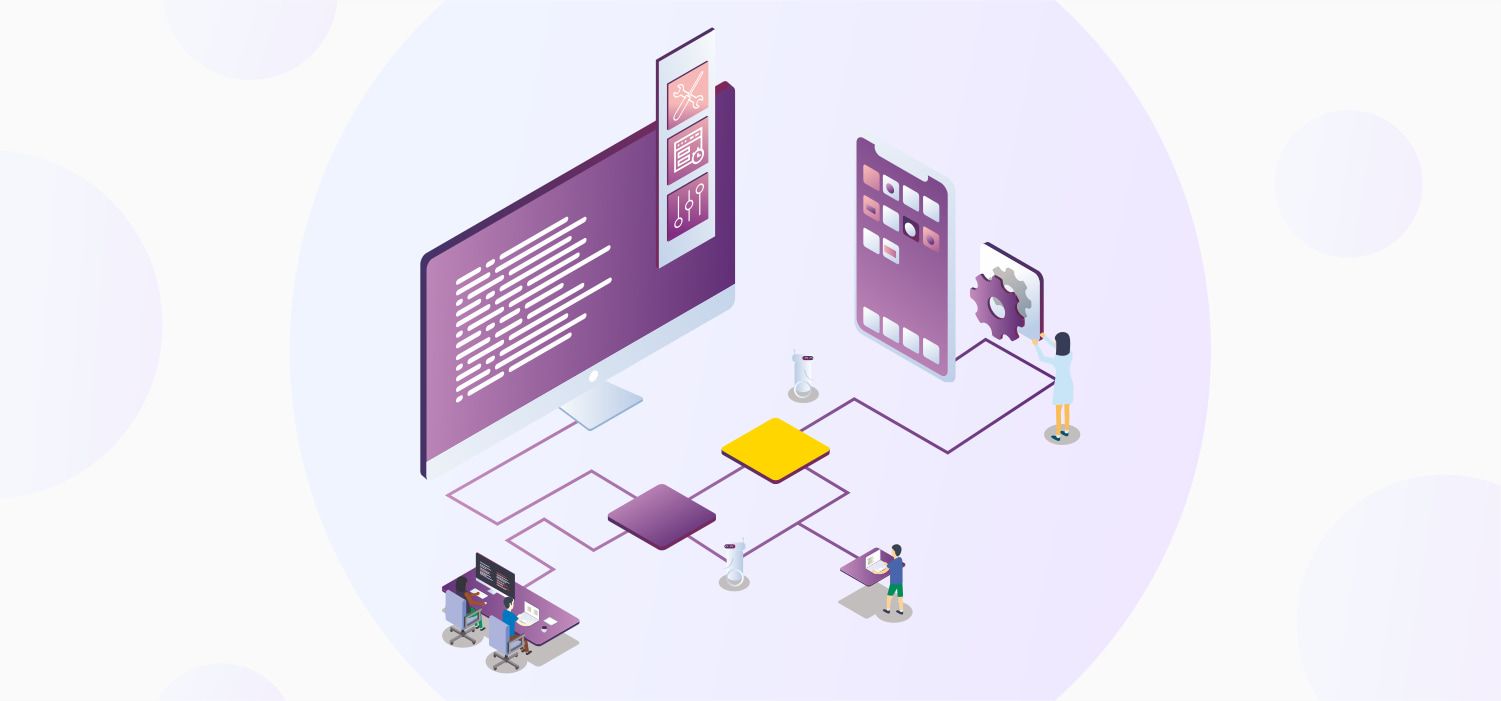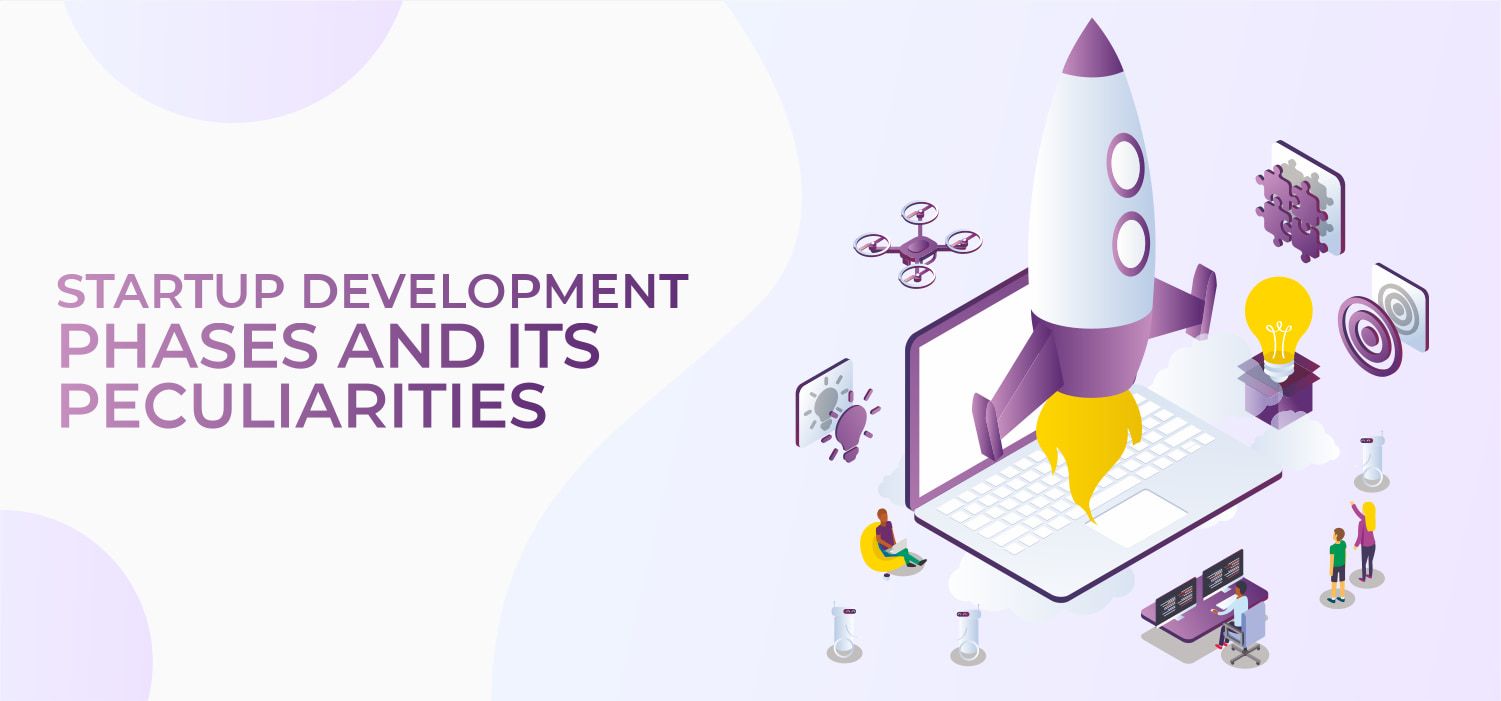When it comes to the development of the startup you should know the startup phases of evolution and its peculiarities. Our team prepared a brief overlook from which you will have a clear representation of the main stages of startup business development.
Basically, the business life cycle and particularly the process of startup development might be divided into the phases of the formation, validation and growth.
At the first stage of formation of your business, the startup will go from mission to vision and to strategy. It is crucial to identify your startup idea and do market research by answer such questions as What to whome? And Why and how? The next stage - validation means you will be following from visionary idea to product creation with the market fit. At this point launching Minimum Viable product and validation/iteration is crucial to frame the startup and improve its product. The stage of growth suggests that a startup will transform into the business model that has already been established. Your business will continue to grow with your/your team support.
Right now, let’s discuss each stage with the focus of its peculiarities.

1. Define Ideas and Do Market Research
Product development strategy is a crucial step to determine the core principles of every successful startup. Developing an idea for a startup should consist of several steps in order to be transformed into a winning final result:
Brainstorm. This is the best way to come up with the right concept for your future startup business. Just let yourself go and write down every single idea related to your skills and interests.
Evaluate. After you have a collection of a wide range of ideas, analyzing will be the next step. Think of its strengths and weaknesses. Pay attention whether you are passionate about this idea, or will you be developing this idea for the future decade, or whether this idea is unique at the perception of the people.
Research. When you are sure about the concept of the startup idea, it is time to do proper research. Due to this, you will find out about industry trends and size, target segments and competitors on the market including pricing and product marketing.
Kill. The final stage will be killing your idea. Take in mind that you are your own worst critique. Therefore, try to examine not only the good side of your product but also bad ones. Think about why this product might fail in the future. This need not to discourage you, but rather ask you to apply critical thinking in order to improve your startup product.
When you will be sure about the idea of your startup development, it’s time to do market research.
You should know the particularities of the market segment, target audience, and their needs, your potential competitors. You should choose the sphere that is familiar to you. Analyze your business competitors and come up with better features of the product, innovate the old idea and create a modern product - there are so many opportunities to became the leader in your business area.
Read our article about “7 Expert Development Tips for Building a Startup”
Take in mind that most startups fail because of the lack of proper research and planning. That is why you should not underestimate the stages of idea development and marketing research. You should set a realistic goal for your online startup development and follow it step by step. Be patient and be sure about your decisions. But at the same time do not neglect the basic elements that will help you to build a reliable online business.

2. MVP
Some startup owners tend to skip the stage of MVP, thinking of it as unnecessary testing of your product before the final launch. In fact, it is one of the most crucial steps in the startup development chain. Launching MVP allows to learn about customer behavior and collect feedback regarding your product. Based on this information, you will be able to improve your product by adding or eliminating certain features. MVP helps you produce the final version of the top-notch product.
Read our article “How to Create the MVP: Your Step-by-Step Guide”
Take in mind that it is essential to launch an MVP as soon as possible and only with the main features of the product. In that case, you will have the chance to get early users’ opinions and modify your product according to them. At this stage, the technological approach is very crucial so that at further stages of architecture or scaling, there will be no need to waste time on refactoring and starting the process from scratch.
Therefore, before launching an MVP contact a freelancer or a team of developers. Experience developer will help you to choose the right tech stack for your startup and will advise you on the product development strategy.
Read our article about Freelancers vs Web Dev Company

3. Validating and Testing
This stage is focusing on the interacting and testing of your product for the validated solutions and decision-making process. Potentially, the user and revenue growth will be achieved. This stage suggests the creation of the product with the market fit, that is why KPI’s (Initial Key Performance Indicators) is identified and further followed.
Needless to say that the core of every successful startup business is the modern and progressive technologies that allow achieving high-level usability. It is essential to build adaptive and scalable software architecture so your web/mobile app will be able to grow along with your business.
Read our article where we discussed which JavaScript (Angular, React or Vue) framework is the best for web app development

4. Support and Monitoring
The phase of startup growth suggests your startup as an established business model with the tendency to further evolution. However, your support and monitoring of market indicators are essential to guarantee the sustainable development in the future.
To maintain what you have built so far you need to consult with tech developers to improve or add some new features and tools in your product in accordance with the market development. In addition, you may ask for SEO consultancy to increase your digital presence. What you have to do at this phase is to come up with an effective marketing strategy for your startup.
Conclusion
The stages of business growth should not be neglected if you want to build a reliable and the most profitable business. Therefore, your new business should follow the pattern of problem/solution fit to vision to product/market fit and finally to the established business model.
Each stage plays a crucial role in the chain of the startup development process. At the first stage of the formation of your startup, you will go from mission to vision and strategy. The second stage of validation suggests paying attention to the launching of the MVP and further validation and iteration. The final stage of growth means that monitoring and supporting your startup will be a continuous process even after it will become a proper business model.
To know the main stages of a startup development will help you to frame the potential strategies of development and possible challenges you may face during the process of development.
In case you have left any questions or you have any suggestion, feel free to contact us and we will help you in any inquiry!





